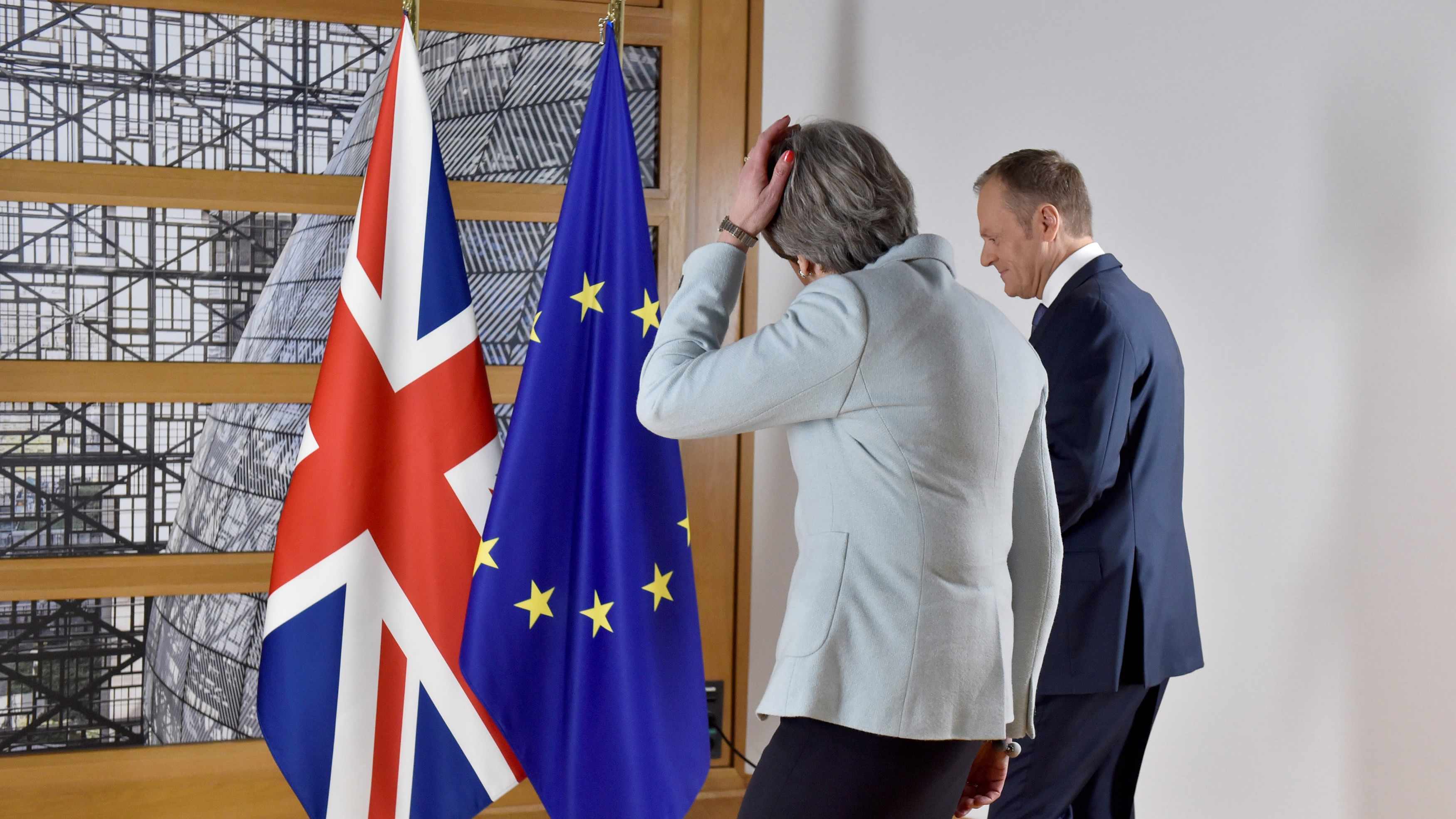
Politics
17:00, 14-Dec-2017
EU summit: Brexit, PESCO and Jerusalem on the menu
By John Goodrich

Brexit, the eurozone, and military cooperation are expected to lead the agenda as EU leaders gather in Brussels on December 14-15 for the final EU Council summit of 2017.
Discussions will take place against the backdrop of uncertainty over Germany’s future leadership, a row over whether a deal on Britain’s exit from the bloc is binding, the US recognition of Jerusalem as Israel's capital, and French President Emmanuel Macron’s increasingly muscular role on the world stage.
Brexit: Sufficient progress?
Brexit is the headline issue at the EU Council summit. The 27 EU leaders (excluding the UK) are expected to rubber stamp the EU Commission’s (EC) recommendation that “sufficient progress” has been made on citizens’ rights, the Irish border and financial obligations in a deal struck on December 8. If they give the go-ahead, talks will move to phase two: a transition period and the future trading relationship.
However, suggestions from the British Brexit Secretary David Davis that the deal struck last week was not binding have provoked a strong response – particularly from Ireland. The EU’s chief Brexit negotiator Michel Barnier has warned the UK not to “backtrack” on the deal.
Brexit: Race against time
European Council President Donald Tusk is expected to detail how the negotiations over a future trading relationship will take place, although setting out how a transition period will work is likely to be the first step for negotiators.
On Wednesday, Tusk warned that completing all negotiations before Britain is due to exit the bloc in March 2019 would be a “furious race against time.” The British parliament has now decided that it must have a vote on a final deal, in a blow to Prime Minister Theresa May.
Foreign policy: Jerusalem and Russia
US President Donald Trump’s decision to recognize Jerusalem as Israel’s capital – and the fallout – is expected to be discussed, with a joint statement on the EU’s position possible.
Relations with Russia will also be on the agenda. The EU leaders are expected to extend sanctions targeting Russia’s energy, defense and financial sectors until mid-2018.
Economy: Euro finance minister?
The EC has proposed the creation of a new role: an economy and finance minister for the eurozone. The plan is a watered down version of Macron’s vision for an EU finance ministry, but the breadth of support within the eurozone countries is yet to be tested.
Reforms to strengthen the monetary union by creating a European Monetary Fund to assist eurozone countries by restructuring struggling banks are also set to be discussed.
Defense: EU military force
A long-planned move – blocked repeatedly by the UK -- to create an integrated EU military force is expected to be hailed by leaders. Twenty-five EU governments - all but Britain, Denmark and Malta – have agreed to the establishment of the Permanent Structured Cooperation (PESCO).
The pact will see the militaries of individual EU states plan, spend and deploy together. It is seen as a part of an effort to reduce the bloc’s reliance on US military power. More than a dozen projects have already been agreed under the framework.
Migration: East-west rift
A row broke out on the eve of the summit when Tusk said compulsory migrant quotas for EU member states had been “ineffective” and “highly divisive.” The comments, condemned by Western European members, exposed a rift over migration policy between eastern and western EU states.
The flow of migrants from the Middle East and Northern Africa to Europe has slowed in 2017 with the help of EU-backed schemes in Turkey and Libya, but the EU is eager to be prepared for a new surge of migrants and wants consensus on a bloc-wide policy.
7971km

SITEMAP
Copyright © 2018 CGTN. Beijing ICP prepared NO.16065310-3
Copyright © 2018 CGTN. Beijing ICP prepared NO.16065310-3